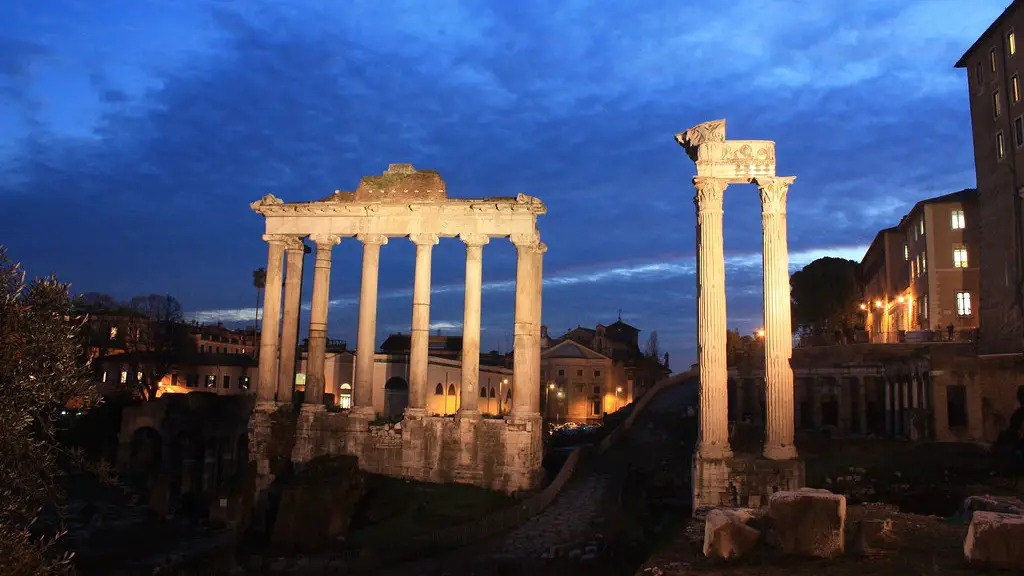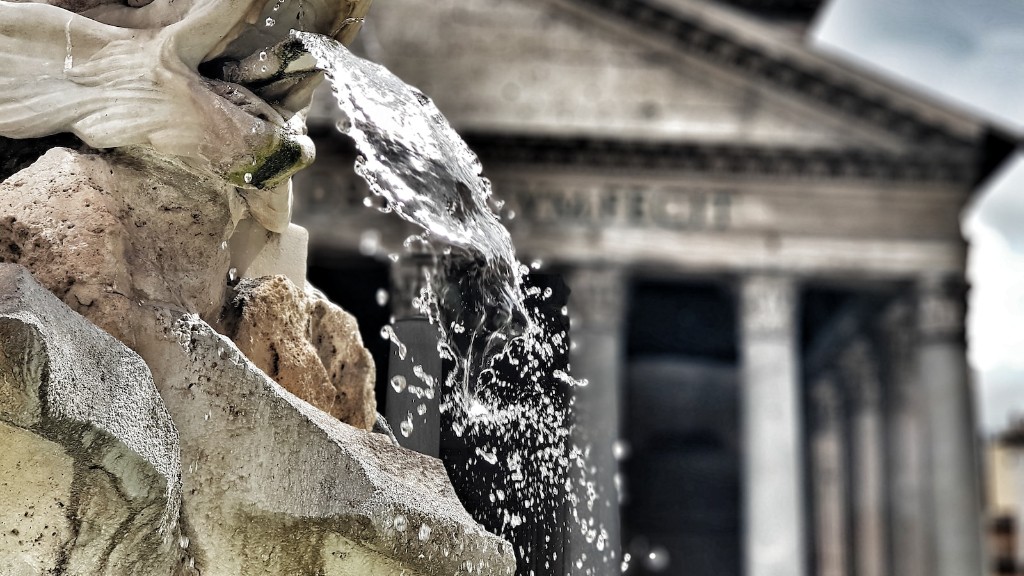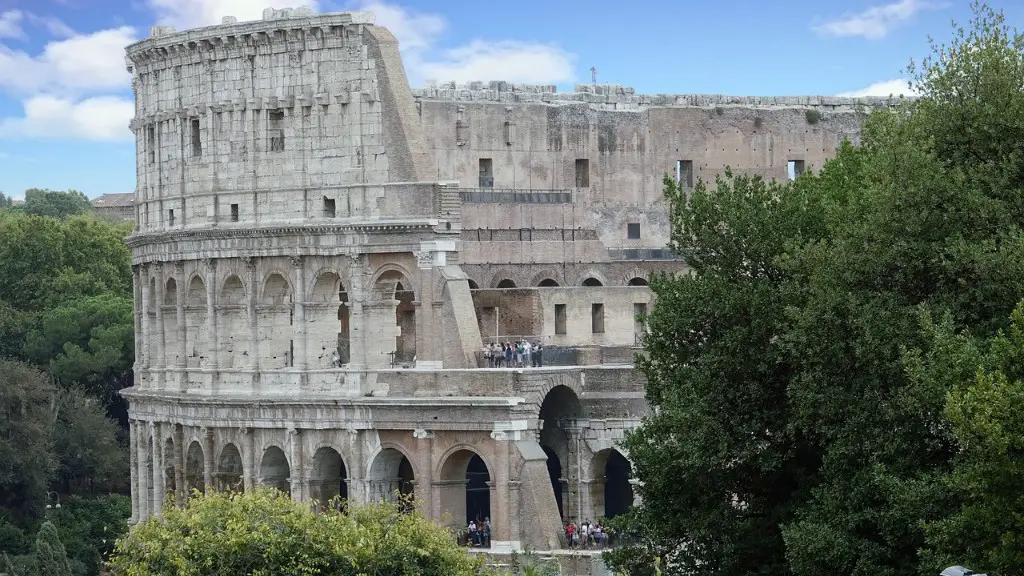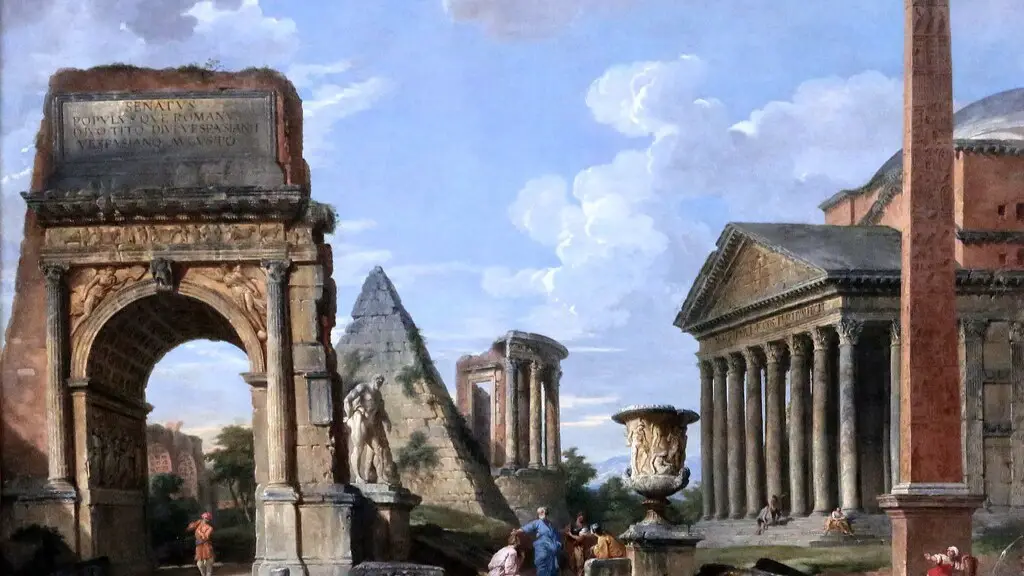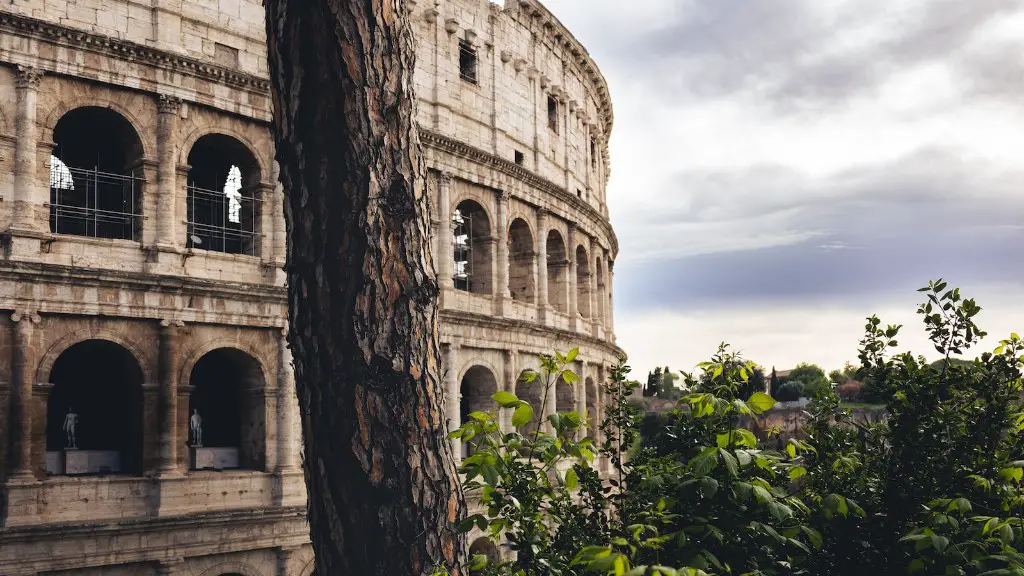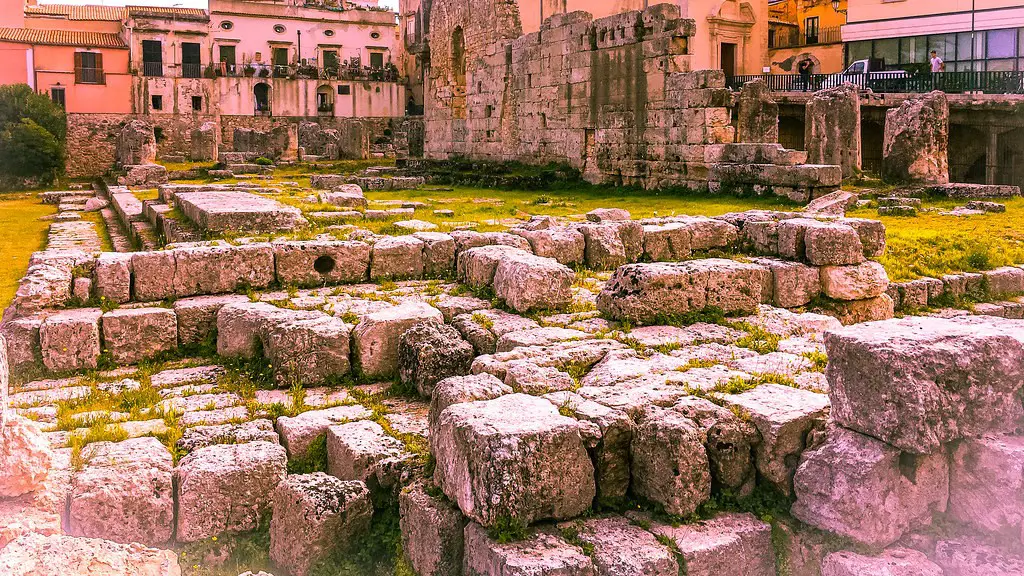In the heydays of Ancient Rome, religion was an essential part of the Roman way of life. Although the pantheon of gods may not have had a single, coherent definition, the pagan Romans were devoted adherents to their religion. This can be best seen in their culture and practices like respecting oracles and worshipping their gods.
The concept of the Roman gods was first established by the Romans’ own mythology, when they described the gods as a set of supernatural entities. These entities were focused on providing humans with the guidance to make decisions that would help them live the best life possible. The gods that they recognised were often abstract and intangible in their power, yet they had strong relationships with mortals. This connection between mortals and deities was said to bring good luck and to help guide humans through difficult situations.
The religion of Ancient Rome was polytheistic and the primary gods were Jupiter, Juno, and Minerva. Ancient Roman religion also involved other minor gods that had specific purposes depending upon the situation. For example, the god of the sun was Apollo, who was believed to be the one who brought bright days and drove away evil spirits. The goddess of agriculture was also a popular god as she was believed to be responsible for the growth of plants and increase of yields in farms. The Roman gods had specific rituals that were performed in order to communicate and interact with them. Sacrifices, feasts, and rituals were common methods of honouring gods.
In addition to gods, the Romans had a strong belief in superstitions. Ancient Roman superstitions described bad omens such as animals, Jupiter’s lightning bolts, and certain phrases. Superstitions were taken into great consideration in Ancient Rome as they were believed to be signs from the gods. If something bad happened in society, it was often assumed to be a result of an unsatisfactory act that must have been performed. The Roman religion was focused upon appeasing the gods by taking the proper precautions and practices in order to not incur their anger.
The Romans also believed in the afterlife and the idea of an immortal soul. According to the Roman religion, the soul was immortal and able to move on to a better place after death. This ensured that good behaviour was rewarded in the afterlife, as well as providing a level of comfort in times of distress and sadness.
In conclusion, Ancient Roman religion was an integral part of life in Ancient Rome and revolved around worshiping of gods, appeasing them through superstition, and having faith in an afterlife. To the pagans of Rome, these aspects of the Roman religion allowed them to interact with their gods and to live their life in harmony.
Temples, Priests and Worship
The main temples of Ancient Rome were located on the Capitoline Hill in the centre of the city. There were numerous, smaller temples within the city that were dedicated to various gods. The temple priests were responsible for the rituals associated with each deity and were closely supervised by the College of Pontiffs. Besides temples, other places of worship like sacred groves, open-air altars, and home shrines were common in Ancient Rome. Rituals consisted of sacrifices of animals, fruits, and vegetables and in some cases, prayers and supplications.
The college of Pontiffs were a group of important priests that were in charge of ancient Roman religion but not just the temples. They were responsible for the rituals, the calendar, and laws associated with the religion. The main role of the Pontiffs was to interpret the will of the gods. They believed that this would keep the Gods content and in turn bring prosperity to the nation.
The Romans also believed in the power of omens and they had set rituals that they followed when interpreting them. Omens consisted of natural phenomena, such as thunder, lightning, and the flights of birds, which they believed to be messages from the gods. These omens were seen as signs of the future, and certain rituals were undertaken to discern their meaning. The haruspices were a group of priests who were in charge of interpreting the omens.
The ancient Roman religion’s influence can also be seen in Roman literature, with the gods present in many myths and stories from the time. These tales were often used to explain concepts like the origin of the universe or the relationship between gods and mortals. These stories were popular among the people of the time and further reinforced the concept that gods were at the centre of their lives and culture.
Festivals
Festivals were an important part of Ancient Roman religion and their society. The festivals were held throughout the year in honour of the gods and provided citizens with the opportunity to prove their devotion. The most important of these festivals was the Lupercalia, which was celebrated to honour Romulus and Remus, the mythical founders of Rome. Another notable celebration was the Saturnalia, which was held to honour the god Saturn and featured feasts, sacrifices, and gift-giving. The Vestal Virgins, female priests, also played an important role in Ancient Rome and were said to be instrumental in the favour of the gods.
The Vestal Virgins were charged with the maintaining of the sacred flame, which was believed to be a sign of the gods’ presence. They were revered for their commitment and respected for their duty. They were also often consulted for oracles and interpretations of omens, which gave them an important role in Roman religion. The Vestal Virgins were also celebrated on an annual festival, which was held in honour of their role in the religion.
Fertility was also another major part of Ancient Rome’s religion and many festivals and rituals centered around it. These festivals were held to celebrate the life-giving powers of fertility and showed the Romans’ devotion to their gods. Processions, offerings, and chants were common in these celebrations. Some of these festivals were dedicated to the Laresor household gods. The Lares were believed to be in charge of the household’s prosperity and health, and so it was important to honour them.
The sacred groves were also held in high regard by the people of Ancient Rome. These were areas of land which were dedicated to cycles of life and fertility. Sacrifices were made and offerings were laid out in these groves, in order to gain the favour of the gods. The Romans believed that these groves possessed healing and protective powers, which further emphasised the importance of them in their society.
Gods
In Ancient Rome, the pantheon of gods focused on four main deities. Jupiter, the chief god, was responsible for thunder and lightning, while Juno was the protector of women and marriage. Minerva was the goddess of wisdom and Mars was the god of war. In addition to these core gods, there were other, minor gods with specific roles. For example, Janus was the guardian of gates, Neptune specialised in the ocean, and Pluto was the ruler of the underworld.
The Roman gods were often associated with their Greek counterparts and were often depicted with similar features. This was due to the close origin of the two cultures and the exchange of ideas that occurred, particularly through the works of Virgil and Horace. The Romans often repurposed and adapted the stories from the Greeks and used them to explain their own religious beliefs.
The Roman religion was centred around restoring the order of the universe and understanding the will of the gods. It was believed that this order was vital for the health and prosperity of the people and their nation, and so the priests and other believers sought to interpret the meaning of the divine signs and omens. Faith in the gods was important to the people of Ancient Rome, and it was reflected in their culture and stories.
The Decline Of Ancient Roman Religion
The early stages of the decline of Ancient Roman religion can be traced to the wars that Rome fought with its Mediterranean neighbours, such as the Greeks and the Egyptians. Rome absorbed a lot of their culture and beliefs and adopted them into their own religion. This lead to difficulties in maintaining the traditions and rituals of their own religion and eventually many of them were forgotten.
In addition, the rise of Christianity in the 4th century was a major factor in the decline of the religion. With the spread of the new faith, many Romans converted, and their beliefs shifted to the new religion. This lead to a decline in the number of people worshipping the traditional gods, and many of the rituals were abandoned as Christianity became more dominant.
The economic crisis of the 5th century however, combined with the spread of Christianity, resulted in the decline of the Roman religion. With the fall of the Roman Empire, any remaining worshippers of the old gods scattered and the faith was no longer the dominant one in Rome. This resulted in the decline of the religion and it eventually became an insignificant part of the culture.
Legacy
Although the Roman religion all but disappeared, it left a lasting impact on society. Its mythology was popular in literature, and its concepts of belief and superstition have endured to this day. The pantheon of gods still has an important role in certain aspects of Italian culture as well. The influence of the Roman religion can still be seen today in the calendars, holidays, art, and architecture. The religion also had an impact on the law, as some of the Roman laws were based on the ideas that were seen in the religion.
The ancient Roman religion provided the people with a sense of order and guidance during a tumultuous period in their history. It was a source of comfort and faith during times of distress and hope during times of despair. Although the religion as a whole has faded into the annals of history, its legacy and influence remain in the cultures and societies of today.
